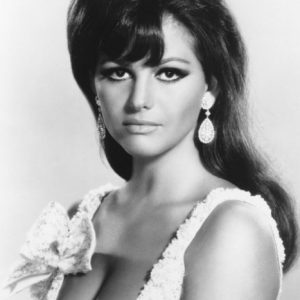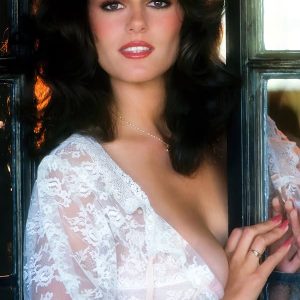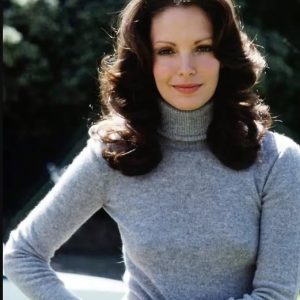
Clint Eastwood is one of the most enduring figures in American cinema. His career, which spans over six decades, has left an indelible mark on the film industry. Initially rising to prominence through his roles in Westerns and action films, Eastwood became a household name with his portrayal of iconic characters such as the “Man with No Name” in Sergio Leone’s Dollars Trilogy and the tough, no-nonsense cop Harry Callahan in Dirty Harry. These roles established Eastwood as an on-screen tough guy with a stoic demeanor, commanding presence, and rugged charm.
While he initially made his mark as an actor, Eastwood’s influence expanded when he transitioned to directing in the early 1970s. His debut film, Play Misty for Me (1971), was the beginning of a successful second chapter in his career. Over the years, he directed a string of critically acclaimed films, such as Unforgiven (1992), Million Dollar Baby (2004), and Mystic River (2003), each of which received widespread recognition and garnered Academy Awards. Eastwood’s versatility as a filmmaker is evident in his ability to tell complex, multifaceted stories with deep themes, proving his talents extend far beyond acting.
The Influence of Clint Eastwood as a Director

Eastwood’s directorial style is known for its simplicity and power, often focusing on characters caught in moral dilemmas or intense personal struggles. His films dive into themes such as redemption, loss, and the human condition. For instance, Unforgiven explored the complexities of violence and justice, while Million Dollar Baby touched on themes of hope and perseverance. His ability to bring out exceptional performances from his actors is a testament to his skill as a director. The recognition he received, including Academy Awards for both Unforgiven and Million Dollar Baby, only solidified his place as one of the most respected filmmakers in Hollywood.
Moreover, Eastwood’s political views have shaped not just his public persona but also the stories he chooses to tell. His film American Sniper (2014), based on the life of Navy SEAL Chris Kyle, became a point of discussion and debate due to its portrayal of the military and the war on terror. Eastwood’s ability to provoke thought and discussion with his films shows his commitment to engaging with significant social and political issues through his work.
Clint Eastwood’s Final Directorial Project: Jury #2?

Recent rumors suggest that Clint Eastwood is preparing for his final directorial effort, with Jury #2, a legal thriller, potentially marking the end of his illustrious filmmaking career. At 92 years old, Eastwood’s decision to possibly retire after Jury #2 would be a major moment in Hollywood, as this film would be his 40th feature. Sources close to the director have suggested that the project may be his final venture in filmmaking, though some rumors hint that he may return for future projects.
Jury #2 is said to revolve around a juror who grapples with a moral dilemma: whether to manipulate the jury to save himself or come clean and face the consequences of his actions. This intense, psychological conflict is a fitting subject for Eastwood, whose films often explore complex human emotions and ethical choices. The film is set to be produced by Warner Bros., a studio with which Eastwood has had a long and successful collaboration. Given his storied history with the studio, it would be fitting for his last film to come under their banner.
Clint Eastwood’s Family Life and Legacy
Despite his legendary career, Clint Eastwood’s family life is another significant aspect of his persona. His children, including daughter Francesca Eastwood, have shared glimpses into the more personal side of the actor. Francesca posted a heartfelt tribute to her father on social media, praising him as “the best dad” and “the best grandfather.” This intimate view into Eastwood’s family life reveals that beyond the Hollywood icon, he is a family man with deep bonds to his loved ones.
Clint’s grandson, Titan, has also expressed admiration for his grandfather, highlighting Eastwood’s role as a supportive figure in his family’s life. This side of Eastwood is a contrast to the tough, lone wolf image many associate with him from his on-screen roles. It reminds us that, like the complex characters he portrays, Eastwood himself is a multifaceted individual with a strong sense of family and commitment to his loved ones.
Clint Eastwood’s Enduring Impact on Cinema

Clint Eastwood’s legacy is undeniable, whether he chooses to retire from directing or continues to create new works. His contributions to film, both as an actor and director, have shaped the landscape of American cinema for decades. His films resonate with audiences because they tackle universal themes of morality, redemption, and the human experience. Even as rumors swirl about his retirement, Eastwood’s place in Hollywood history is secure. His body of work speaks for itself, and even if Jury #2 marks his final film, Eastwood’s impact on the film industry will continue to be felt for generations to come.
While it may be sad to think of his departure from filmmaking, it’s clear that Clint Eastwood has achieved a remarkable career that will not soon be forgotten. Whether or not Jury #2 becomes his final project, Clint Eastwood’s legacy as one of Hollywood’s greats is firmly established.





